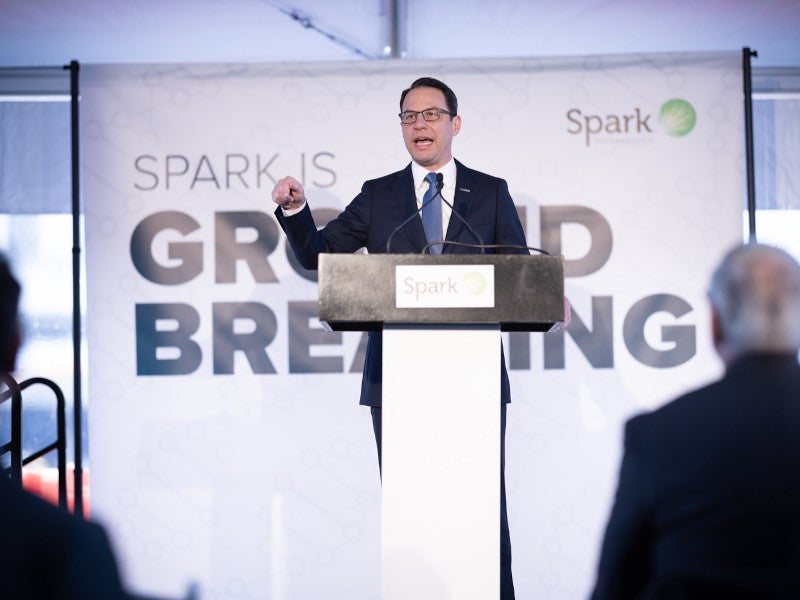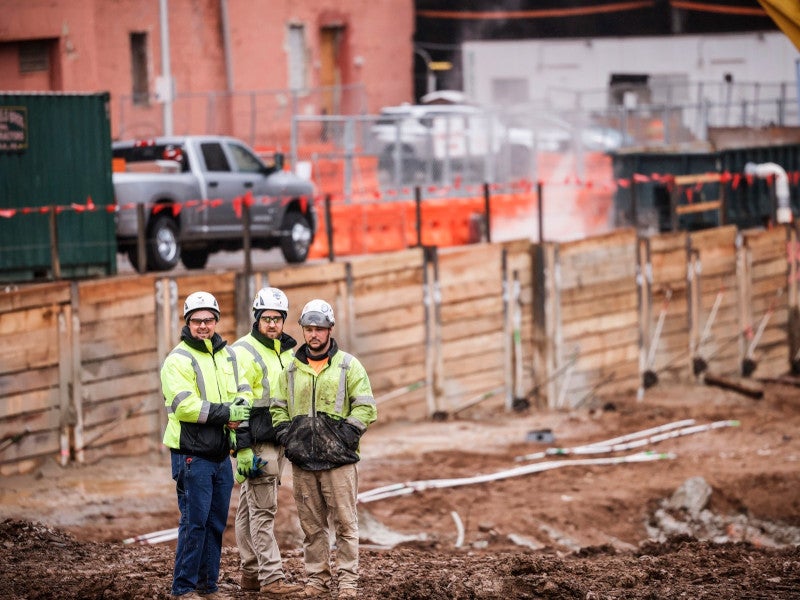Spark Therapeutics, a US-based biotechnology company and a member of the Roche Group, began construction of a new Gene Therapy Innovation Center on Drexel University’s campus in Philadelphia, US, in February 2023.
The facility will advance gene therapy manufacturing globally by bringing together experts for scientific advancements and serve as a Roche global centre of excellence for gene therapy manufacturing.
The company will initially invest approximately $575m in the first phase of the project. The facility is expected to be completed in 2026.
Spark’s Gene Therapy Innovation Center location
The facility will be located within Spark’s one million square foot campus, whose ground was leased for 99 years on Drexel University’s F lot in Philadelphia’s University City neighbourhood.
The facility will be situated at the intersection of 30th and Chestnut Streets.
Philadelphia is one of the leading biotech hubs in the US and thus can play an important role in the advancement of cell and gene therapies.
Spark’s Gene Therapy Innovation Center details
The state-of-the-art facility will be built as a multi-storey building on a 500,000ft2 area, nearly doubling the company’s physical footprint in Philadelphia.
It will be the first gene therapy manufacturing facility of its size in Philadelphia.
Manufacturing of AAV vectors
Spark uses adeno-associated viral (AAV) vectors to advance research programmes against strategically selected cell targets such as the retina, liver and central nervous system.
The company uses two cutting-edge approaches, adherent and suspension, based on the therapeutic requirement to grow the vector cells in culture for carrying a functional therapeutic gene.
For generating the cells in culture, the mammalian cells are grown in large numbers and volumes in the company’s manufacturing facility under controlled conditions. Further, the therapeutic gene of interest is packaged into a vector within the grown mammalian cells with the help of viral DNA using a transient transfection process.
The transfected cells replicate the AAV virus and package it into capsids. Capsids are the protein shells that protect the viral genetic material.
The cell culture is then harvested and processed to extract the AAV vectors. The harvested material then undergoes purification processes such as chromatography and filtration to isolate and purify the AAV vectors.
The purified AAV vectors, after undergoing certain quality control tests, are concentrated and formulated to achieve the desired dosage and stability for administration.
The formulated AAV vectors are filled into vials or other appropriate containers, which are then sealed and labelled for distribution.
Contractors involved
Jacobs, an engineering services company based in the US, received the engineering, procurement and construction management contract for the construction of the facility in June 2022.
Marketing commentary on Spark Therapeutics
Headquartered in Philadelphia, Spark Therapeutics was founded in 2013 and is the first company in the US to receive FDA approval for a gene therapy for a genetic disease.
The company comprises a diverse and experienced team united for a collective goal to challenge the inevitability of genetic diseases. It works for the treatment of people suffering from genetic diseases such as inherited retinal diseases (IRDs), lysosomal storage disorders, haemophilia and neurodegenerative diseases.
The company’s current clinical pipeline has SPK-8011, an investigational gene therapy for haemophilia A or factor VIII deficiency and Fidanacogene elaparvovec, an investigational bio-engineered AAV vector for haemophilia B or factor IX deficiency in their late stages of development, as well as SPK-3006, an investigational gene therapy in the early stage of development for the potential treatment of Pompe disease.





